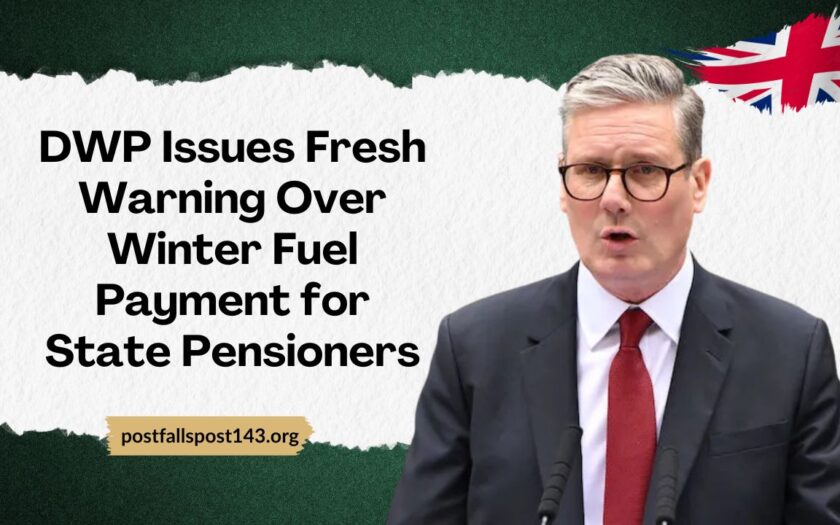The Department for Work and Pensions (DWP) has recently alerted the public about potential scams involving the Winter Fuel Allowance.
In a post shared via X (formerly Twitter), the DWP warned people to be cautious of unsolicited messages related to the new £200 or £300 Winter Fuel Payments.
Scam Alert: How to Spot Fraudulent Messages
In their warning, the DWP clarified that any messages offering the Winter Fuel Payment through text are likely fraudulent. The official Winter Fuel Payments are issued automatically, and recipients do not need to take any action.
The DWP’s official post stated:
“Beware: If you get a text about the ‘Winter Fuel Payment’, it’s a scam. Winter Fuel Payments are made automatically, and you don’t need to do anything.”
How to Protect Yourself from Scammers
The DWP emphasized the importance of 2-step verification (also known as 2SV or 2FA) to protect important accounts. Enabling 2SV adds an extra layer of security to your online accounts.
Red Flags to Watch For
The warning also included a list of common scam tactics to be aware of:
- Unsolicited Offers or Prizes: Be cautious if you receive an irresistible offer or prize notification from an unknown company or number.
- Urgent Security Alerts: Messages claiming that your bank account details are compromised should raise suspicion.
- Fake Delivery Charges: Beware of messages demanding an advance payment for parcel delivery, especially if you haven’t placed an order.
- Family Emergency Requests: Be wary of messages from family members asking for money urgently.
- Unknown Links: Never click on links in unsolicited messages. Instead, visit the organization’s website directly to verify the information.
- Requests for Personal Data: Be cautious if a message urges you to share personal information or contains language designed to create urgency or panic, especially if received outside normal business hours.
What To Do if You Suspect a Scam
If you suspect a message may be a scam, the DWP advises immediate action:
- Do not respond to the message or click any links.
- Stop any communication and do not make any payments.
- Contact the organization or individual directly using a phone number you trust.
- Forward the message to 7726 for free to report suspicious activity.
Who Qualifies for the Winter Fuel Payment?
The Winter Fuel Payment is available to state pensioners born before 1959. However, individuals receiving this benefit should be aware that HMRC may recover these payments through the PAYE system.
The Winter Fuel Payment scam alert serves as a reminder to be vigilant when receiving unsolicited messages about financial aid or government payments. Always verify the authenticity of any suspicious communication and enable security features like 2SV to protect your sensitive accounts.
FAQs
How can I verify if a message about the Winter Fuel Payment is real?
Always check directly with the official organization, like the DWP, through contact details you already know. Do not click on any links in the suspicious message.
What is 2-step verification (2SV), and why is it important?
2SV adds an extra layer of security to your online accounts, requiring you to verify your identity through two separate means, such as a password and a code sent to your phone.
What should I do if I’ve already responded to a scam message?
Immediately stop all communication with the scammer, avoid making payments, and report the incident to the relevant authorities, such as forwarding the message to 7726.

